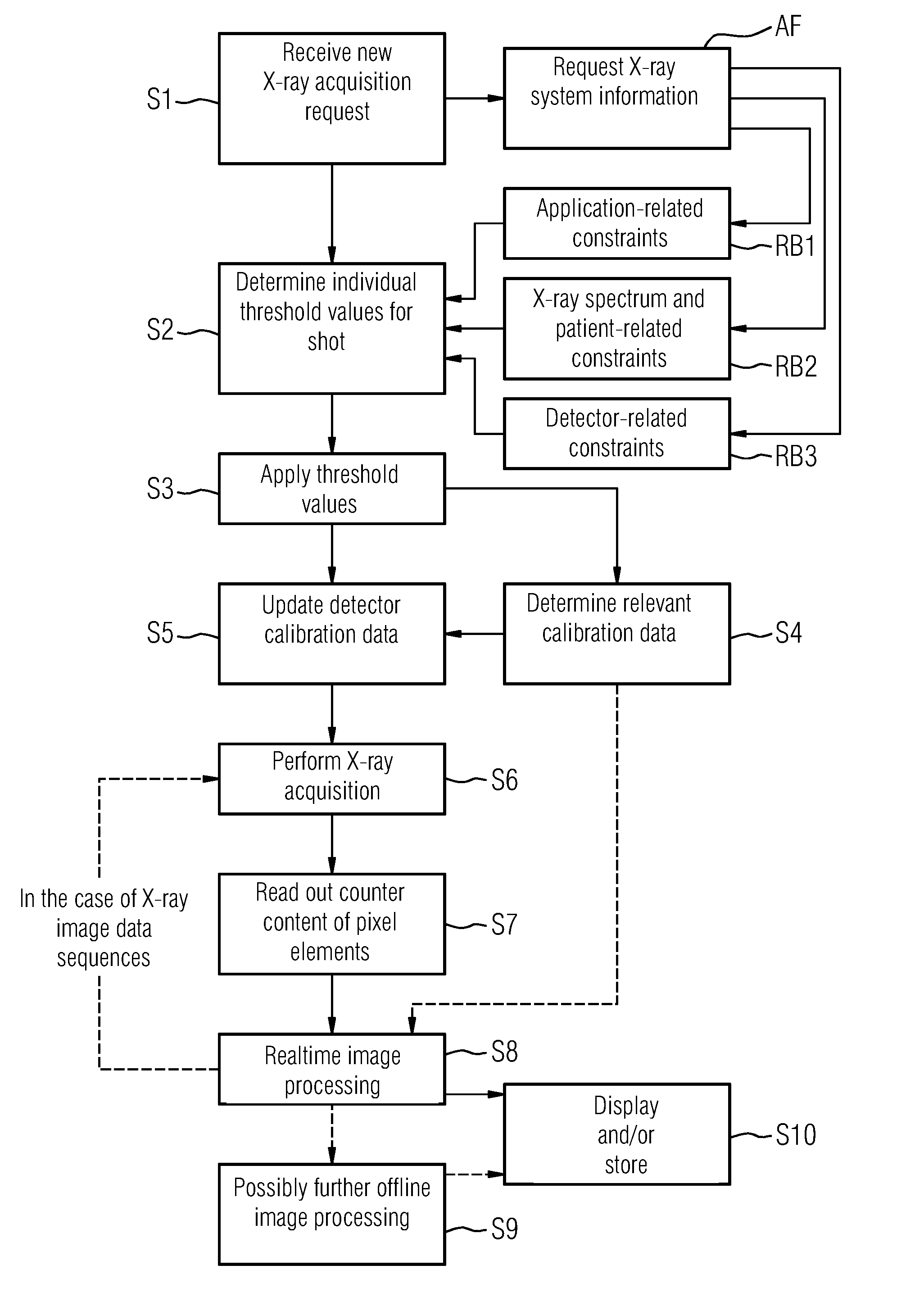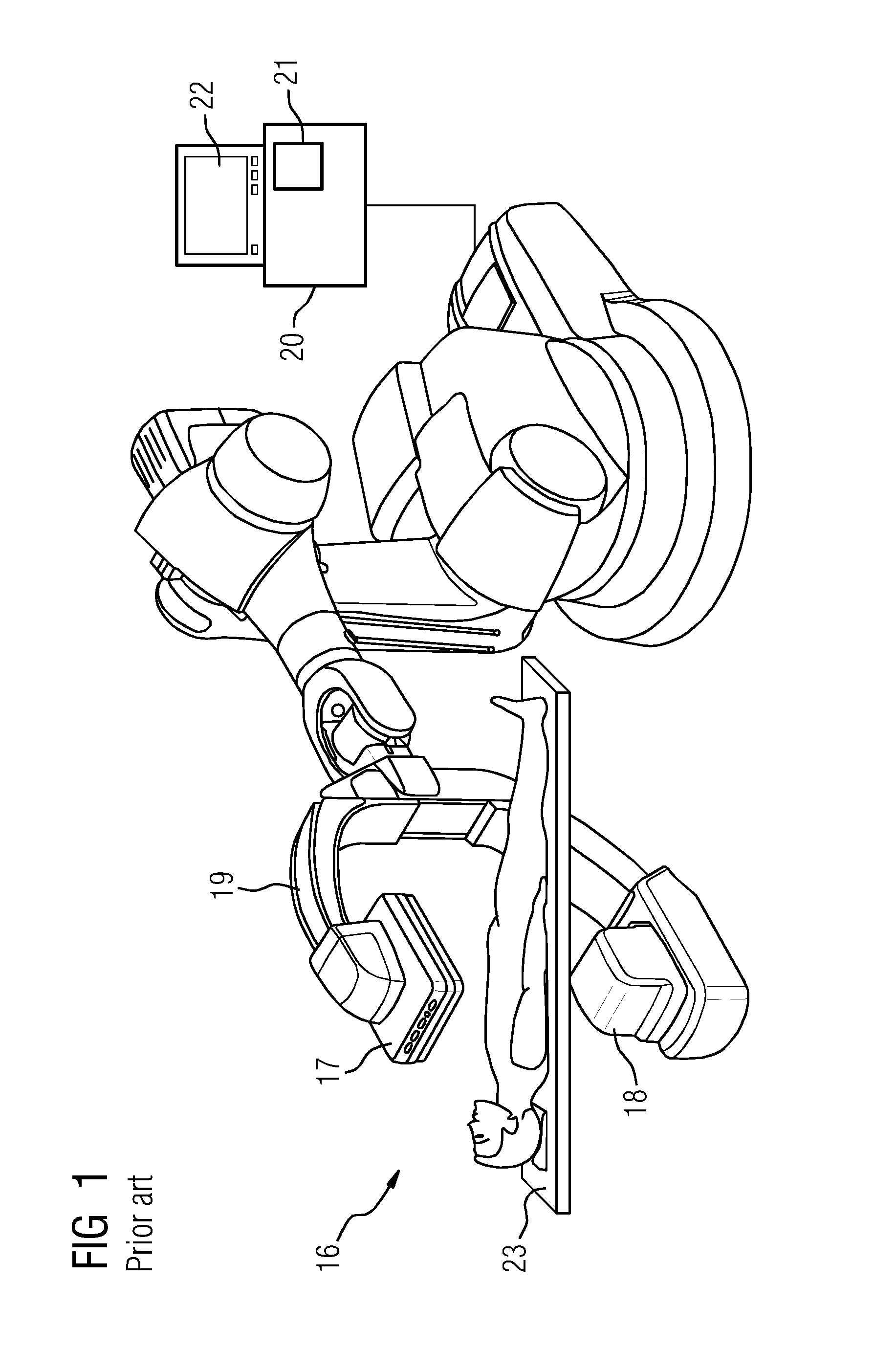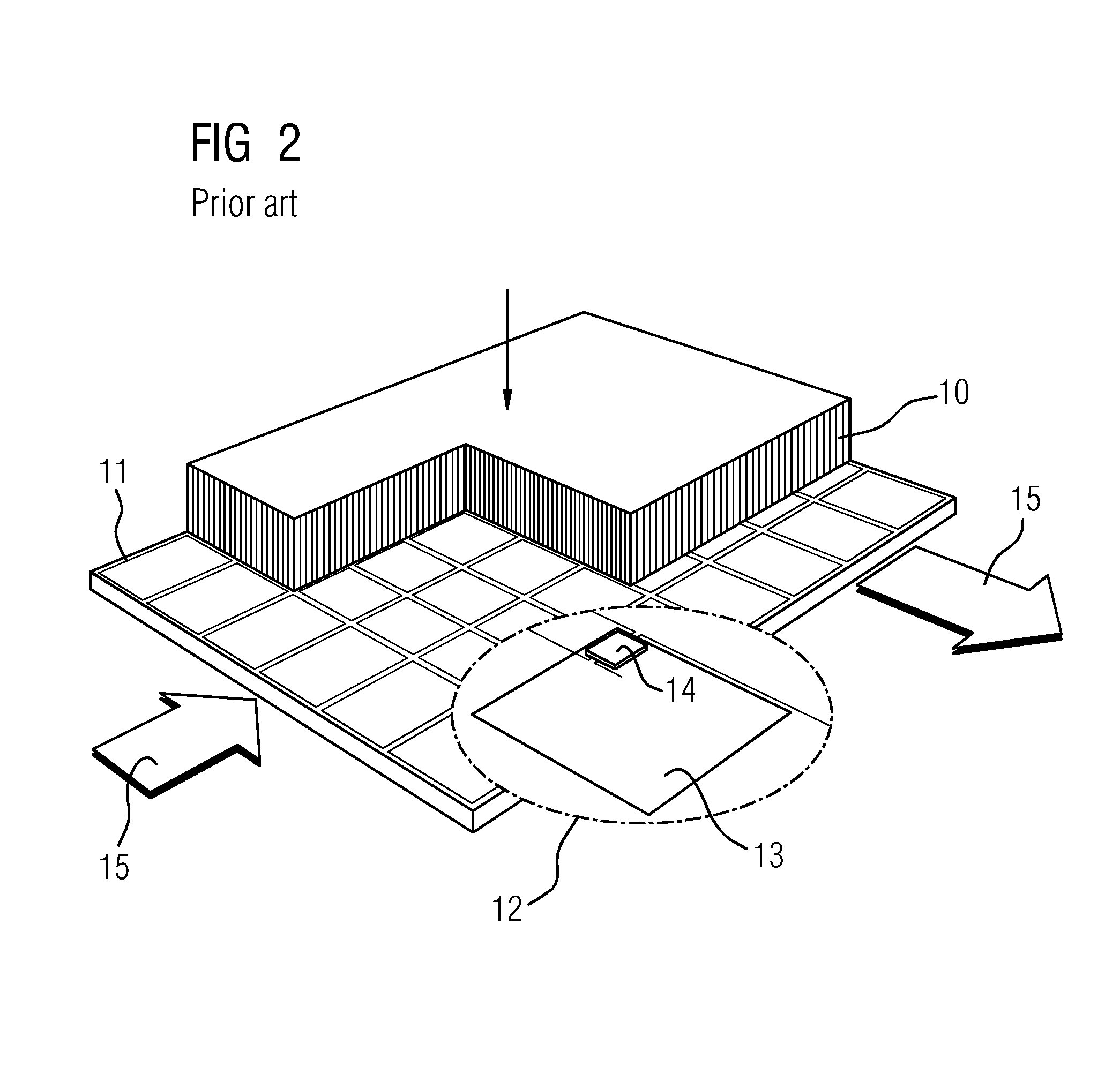Method and System for Acquiring an X-Ray Image
a technology of x-ray images and x-ray images, applied in the field of methods and systems for acquiring x-ray images, can solve the problems of requiring a certain amount of time and cannot be continued without, and achieve the effects of optimizing the display of x-ray images, removing noise or artifacts, and good image quality
- Summary
- Abstract
- Description
- Claims
- Application Information
AI Technical Summary
Benefits of technology
Problems solved by technology
Method used
Image
Examples
Embodiment Construction
[0037]FIG. 8 and FIG. 9 show two different X-ray spectra typical for X-ray imaging, both prior to and after irradiation of an examination subject. A first X-ray spectrum R1 has a higher maximum X-ray energy than a second X-ray spectrum R2, resulting, e.g., from a higher tube voltage of the X-ray tube used. In addition, the X-ray spectra are also shown after two different hardenings a and b at the detector input. Depending on the tube voltage, and pre-filtering of the X-ray radiation and filtering by examination subject and possibly other objects, such as the patient table, the X-ray spectrum is hardened to a lesser or greater degree. FIG. 8 shows a first input X-ray spectrum R1a hardened to a degree a and a first input X-ray spectrum R1b hardened to a degree b. FIG. 9 shows a second input X-ray spectrum R2a hardened to a degree a and a second input X-ray spectrum R2b hardened to a degree b. For many X-ray spectra, image quality may be adversely affected if an X-ray detector has, e.g...
PUM
| Property | Measurement | Unit |
|---|---|---|
| quantum efficiency | aaaaa | aaaaa |
| quantum efficiency | aaaaa | aaaaa |
| thickness | aaaaa | aaaaa |
Abstract
Description
Claims
Application Information
 Login to View More
Login to View More - R&D
- Intellectual Property
- Life Sciences
- Materials
- Tech Scout
- Unparalleled Data Quality
- Higher Quality Content
- 60% Fewer Hallucinations
Browse by: Latest US Patents, China's latest patents, Technical Efficacy Thesaurus, Application Domain, Technology Topic, Popular Technical Reports.
© 2025 PatSnap. All rights reserved.Legal|Privacy policy|Modern Slavery Act Transparency Statement|Sitemap|About US| Contact US: help@patsnap.com



